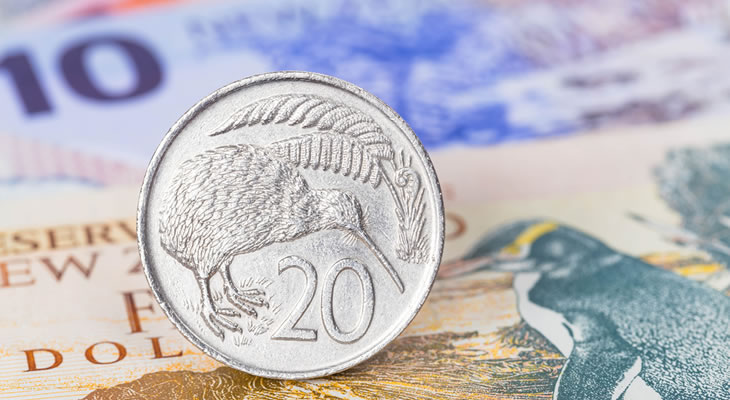The Pound Sterling to New Zealand Dollar (GBP/NZD) exchange rate declined by around -0.26% on Monday morning.
After British economic data produced mixed results, the Pound softened versus the majority of its most traded currency competitors. The slide was oiled by continued political uncertainty as the approaching general election is weighing heavily on investor confidence.
The New Zealand Dollar, meanwhile, edged higher versus many of its major peers despite particularly disappointing inflation data. The advance is as a result of monetary stimulus measures employed by the People’s Bank of China (PBOC) after a recent succession of disappointing data results.
The Pound Sterling to New Zealand Dollar (GBP/NZD) exchange rate is currently trending in the region of 1.9390.
Pound Sterling (GBP) Exchange Rate Trending Lower on Political Uncertainty
With a distinct lack of influential, market-moving domestic data the Pound softened versus most of its major peers as traders look towards the general election. April’s Rightmove House Prices advanced by 4.7% on the year, down from the previous figure of 5.4%. On the month, April’s Rightmove House Prices advanced by 1.6%, bettering March’s score of 1.0%.
‘In spite of the distractions and uncertainty surrounding the upcoming election, demand for the right roof over your head seems unchecked,’ said Miles Shipside, director at Rightmove. For some, their ‘personal housing agenda is perhaps higher than the bigger-picture political one.’
The forthcoming general election has been described as the most hotly contested; a notion evidenced by ever changing opinion polls which show no clear majority for any party. This is having a negative impact on trader risk-appetite given the potential for a massive policy overhaul.
The Pound Sterling to New Zealand Dollar (GBP/NZD) exchange rate dropped to a low of 1.9353.
New Zealand Dollar (NZD) Exchange Rate Climbs despite Poor Inflation Data
New Zealand’s inflation data failed to meet with median market forecast figures for the 1st quarter amid low oil prices. On the year, 1st quarter Consumer Prices Index came in at 0.1%; failing to meet with the market consensus of 0.2%. In addition, the quarterly CPI came in at -0.3%; once again not managing to meet with the forecast -0.2%.
‘Excluding cigarettes and tobacco, the annual CPI decreased 0.2 per cent; excluding petrol, the CPI increased 1 per cent over the year,’ Statistics NZ said.
The inflation report ‘supports our view that the RBNZ will cut interest rates before the end of the year,’ said Paul Dales, chief Australia and New Zealand economist at Capital Economics. Softening economic growth ‘will prevent underlying inflation from rising as far as the RBNZ expects,’ he added.
The poor inflation data was unable to cause the ‘Kiwi’ (NZD) to devalue after the PBOC reduced the Reserve Requirement Ratio for Major Banks from 19.50% to 18.50% to combat recent disappointing data.
Mark Williams, chief Asia economist at Capital Economics, stated; ‘The decision is a response to the weakness of recent economic data. Most of the activity and spending data for March came in below consensus. Further reserve-requirement ratio (RRR) cuts are likely – perhaps another 150 basis points before the end of the year – along with at least one more cut to benchmark interest rates.’
Pound Sterling to New Zealand Dollar (GBP/NZD) Exchange Rate Forecast to Hold Losses
Given the absence of domestic data to curb the trend, and with political uncertainty weighing on investment in the British asset, the Pound Sterling to New Zealand Dollar (GBP/NZD) exchange rate is likely to hold losses for the remainder of Monday’s European session.
Tuesday’s GBP/NZD trade is likely to be dictated by commodities and geopolitics with an economic docket absent of any data pertaining to either the UK or New Zealand.
The Pound Sterling to New Zealand Dollar (GBP/NZD) exchange rate climbed to a high of 1.9432.

